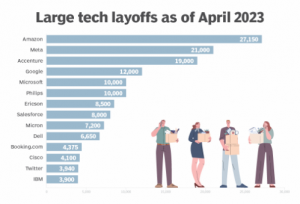Motional Axes 40% of Workforce, Signaling Turbulence in the Autonomous Vehicle Industry

The autonomous vehicle (AV) industry is experiencing a period of significant upheaval, and Motional, the self-driving tech company born from a Hyundai and Aptiv joint venture, is the latest casualty. In a move signaling a strategic shift and a struggle for profitability, Motional has laid off approximately 550 employees, representing a staggering 40% of its workforce.
This drastic measure, gleaned from WARN notice filings and corroborated by sources within the company, follows closely on the heels of Motional’s announcement to pause commercial robotaxi operations and defer the launch of its next-generation Hyundai Ioniq 5 robotaxis until 2026. The company cited the need for restructuring, but the extent of these layoffs paints a stark picture of the challenges facing the AV sector.
Inside Motional’s Restructuring: A Deep Dive
The layoffs have impacted virtually every team within Motional, with high-level departures including Chief Operating Officer, Abe Ghabra. Here’s a breakdown of the key areas affected:
- Technical Program Management: This crucial team, responsible for autonomy and cloud operations, has been drastically downsized from 44 to 19 employees.
- Silicon Valley Operations: Motional’s Milpitas office, housing a significant portion of the compute design team, is being scaled down.
- High-Performance Computing: This entire team, including its director, David Fermor, has been eliminated.
- Los Angeles Operations: The Venice office, serving as a hub for operations and commercial deliveries for Uber Eats, is also being wound down.
- Remote Vehicle Assistance Platform: This team has experienced substantial cuts.
- Other Departments: Product, safety, cybersecurity, and legal teams have all been affected.
While Motional has acknowledged that all departments were subject to staff reductions, the specific impact on autonomy and infrastructure software teams remains unclear.

Geographic Impact of Layoffs: A Look at the Numbers
WARN notices, filed in various states, provide a glimpse into the geographic distribution of the layoffs:
- Pittsburgh, Pennsylvania: Approximately 145 employees, primarily in software roles, were laid off.
- Las Vegas, Nevada: 129 employees, encompassing remote vehicle assist teams, vehicle operators, and testing personnel, were let go.
- Venice, California: 52 employees, involved in high-performance computing, autonomy, system operations, and product development, were affected.
- Milpitas, California: 41 employees, working in similar areas as the Venice office, were laid off.
While Motional conducted testing operations in Massachusetts, no WARN notices have been filed in that state as of yet.

The Road Ahead: Navigating a Challenging Landscape
Motional’s downsizing reflects a broader trend in the AV industry. Companies are grappling with the immense costs associated with developing and commercializing autonomous driving technology, a technology that remains years away from widespread adoption and profitability.
Key Challenges Facing the AV Industry:
- Technological Complexity: Developing safe and reliable self-driving systems is incredibly complex and requires continuous innovation and investment.
- Regulatory Hurdles: The regulatory landscape for autonomous vehicles remains fragmented and uncertain, creating barriers to deployment.
- Public Perception and Trust: Building public trust in autonomous driving technology is crucial for widespread adoption, but incidents and safety concerns can erode confidence.
- High Operating Costs: Maintaining and operating a fleet of autonomous vehicles is expensive, requiring significant upfront investment and ongoing maintenance.
Despite these challenges, the AV industry holds immense potential to revolutionize transportation, improve safety, and enhance mobility. However, the path to realizing this potential is proving to be longer and more arduous than initially anticipated.

Motional’s Future: A Focus on Core Technology
Following the layoffs, Motional has emphasized its commitment to refining its core driverless technology while de-prioritizing near-term commercial deployments and ancillary activities. This strategic shift suggests a move towards a more sustainable business model, focusing on technological development and partnerships rather than immediate market expansion.
The company’s future hinges on its ability to:
- Attract Continued Investment: Securing additional funding will be crucial for Motional to continue its research and development efforts.
- Forge Strategic Partnerships: Collaborations with automakers, technology providers, and ride-hailing services will be essential for commercialization.
- Navigate Regulatory Uncertainty: Working closely with regulators to shape AV regulations and ensure compliance will be critical.
- Build Public Trust: Communicating transparently about safety measures and addressing public concerns will be vital for widespread acceptance.

The Bigger Picture: A Reality Check for the AV Industry
Motional’s restructuring serves as a stark reminder of the challenges facing the AV industry. While the promise of self-driving cars remains tantalizing, the road to realizing this vision is paved with obstacles.
Companies operating in this space must adapt to evolving market conditions, prioritize sustainable business models, and demonstrate a clear path to profitability. The coming years will be critical for the AV industry, separating those with staying power from those destined to fall by the wayside.
Further Reading:








